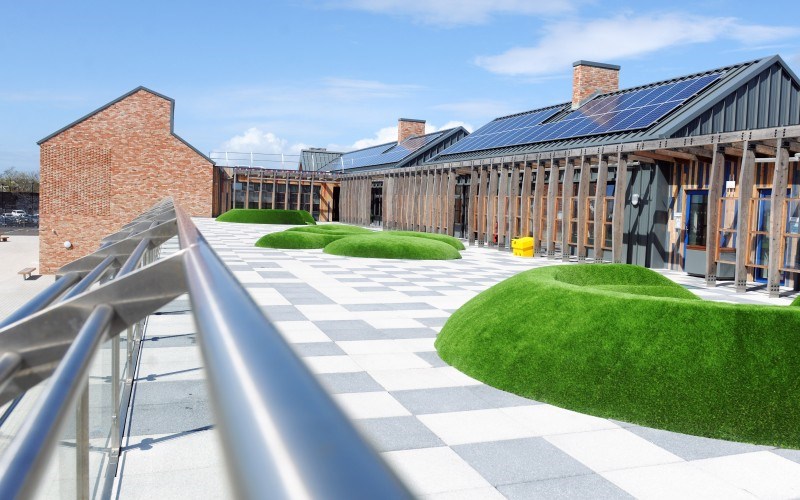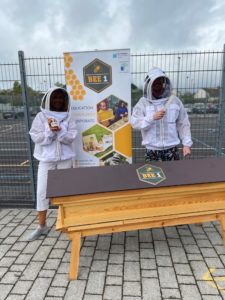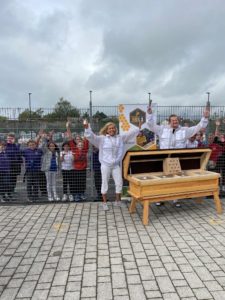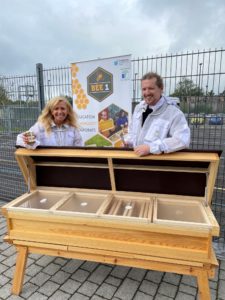 Ysgol Pen Rhos
Ysgol Pen Rhos
Centred on supporting all learners and mindful of well-being
Information about the school
Ysgol Pen Rhos is a dual stream primary school located in Llanelli. Ysgol Pen Rhos has almost 500 pupils on roll, aged from 3 to 11, including 60 part time pupils who attend the school Flying Start nursery on a part-time basis. The school has over 70 members of staff.

Approach taken
Ysgol Pen Rhos have developed a bespoke family focussed approach to the community they serve. They feel there is a very important relational/emotional component to their work as a school. They must operate with these principles and sensitivities in mind. They implement new initiatives that are based on research and best practice.
The community served by Ysgol Pen Rhos is among the most deprived areas in Wales and the proportion of pupils eligible for free school meals is almost double the Welsh average. A disproportionately high number of pupils (over 40%) have special educational needs and many face adverse childhood experiences (ACEs), leading to social and emotional difficulties.
Given the demographic served, Ysgol Pen Rhos takes a whole school ‘trauma informed’ approach to supporting pupils’ well-being, progression and attainment. All staff (including catering and administrative staff) at Ysgol Pen Rhos have been trained in attachment and trauma informed practice, and selected teachers and higher-level teaching assistants (HLTAs) have been trained to deliver specialist interventions such as targeted evidence driven ‘well-being groups’, ‘drawing and talking therapy’, ‘art therapy’ and bereavement counselling. By ensuring that staff have these skills, Ysgol Pen Rhos can respond swiftly to individual pupils’ needs and is less reliant on external services. This is a bespoke model to our school and its needs.
The school puts considerable effort into engaging parents and carers, both in order to encourage their involvement with their children’s education and to better understand the challenges they and their children face. Senior leaders are also keen to establish the school as a community resource that supports parents, promotes family learning and helps build resilience within the community. Prior to the Covid-19 pandemic, the school was open on a Sunday to provide a place of worship for a church community, and it had been intended to offer support to families to engage in a family curriculum supported by this church community on a weekly basis.
Ysgol Pen Rhos works closely with organisations which support children and families, including for example, Flying Start, the Carmarthen Youth and Children’s Association (CYCA), Welsh Government, further education institutions, a range of health specialists, sports experts, and the county’s social services team. The school actively seeks to develop these partnerships nationally and internationally. The headteacher has visited schools in New York, Cincinnati and San Francisco to seek practice to inform the approach at Ysgol Pen Rhos. Examples include the use of schools as community resources after the school day has ended. Promotion of health professionals hot desking out of the school and offering school spaces to other health teams to promote their work in the community. More recently the school is at the centre of transformation and change in the area.
For example, the children are actively presenting to the Pentre Awel Life Science and Well-being Village as key stakeholders in the development of green spaces. The school have been given a green space to develop as a community green prescribing resource for the school and parents. They also have a strategic partnership with Cardiff University College of Biomedical and Life Sciences through which they have a Pharma-bees Project in school with hives located on site and bee corridor in the area. The key driver for this project is to promote the well-being of the school team, teachers and LSA who have been trained in beekeeping, to date 28 staff in all. There is significant literature on keeping bees is a strategy to promote well-being in organisations. Ysgol Pen Rhos want to make this resource open to parents and their well-being too as part of green prescribing in the locality.



“Leaders place a very strong focus on professional development opportunities and the school is developing as a very successful learning community. For example, staff benefit from professional learning opportunities about pupils’ well-being. As a result, this has an extensive and positive effect on pupils’ well-being and learning experiences in school. Staff receive purposeful opportunities to share practice within school and visit other schools which have been recognised as having strong practices in specific areas. Leaders have ensured that the school has developed as a vibrant and proactive learning organisation” – Estyn 2019
